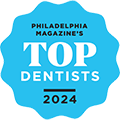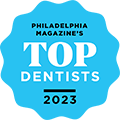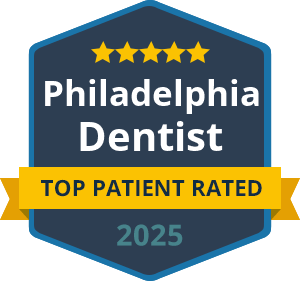
When your child’s dentist discovers a cavity in a baby tooth, you might wonder—is fixing it really necessary? After all, these teeth will eventually fall out. This common question leaves many Philadelphia parents questioning whether treatment is worth the time, cost, and potential anxiety for their child.
However, dental professionals at The Pediatric Dental Team in Philadelphia emphasize that treating cavities in primary teeth isn’t just important—it’s essential for your child’s immediate comfort and long-term oral health. Understanding why these temporary teeth deserve permanent attention can help you make informed decisions about your child’s dental care.
The Critical Role of Baby Teeth
Baby teeth may be temporary, but their importance extends far beyond their limited lifespan:
- Space Maintenance: Baby teeth hold space for permanent teeth developing below the gumline. When they’re lost prematurely due to untreated decay, neighboring teeth may shift, causing alignment problems when permanent teeth finally emerge.
- Proper Speech Development: Primary teeth play a crucial role in your child’s ability to form sounds and words correctly. Missing or damaged teeth can impact speech patterns that might require therapy to correct later.
- Chewing And Nutrition: Healthy teeth allow children to properly chew nutritious foods. When cavities cause pain or tooth loss, children often avoid certain foods, potentially impacting their nutrition during critical developmental years.
- Self-Confidence Foundation: Even young children can feel self-conscious about decayed or missing teeth. Maintaining a healthy smile supports positive self-image during formative social development.
The pediatric specialists at our Philadelphia practice understand that these primary functions make preserving baby teeth a priority rather than an option.
Pain and Infection Don’t Wait for Permanent Teeth
Untreated cavities inevitably progress, regardless of whether they’re in primary or permanent teeth:
- Progressive Damage: Dental decay doesn’t stay small or stabilize on its own. Without treatment, a minor cavity will continue to grow, eventually reaching the sensitive inner pulp of the tooth and causing significant pain.
- Unexpected Timing: Many parents are surprised to learn that some baby teeth normally remain until a child is 12 years old. That’s a long time to endure the consequences of untreated decay.
- Infection Development: As decay deepens, bacteria can cause infection in and around the tooth. These infections can spread beyond the mouth, potentially affecting other parts of the body and requiring more intensive treatment.
- Emergency Situations: Untreated cavities frequently lead to dental emergencies that disrupt school, sleep, and family activities—often occurring at the most inconvenient times.
Statistics show that approximately 42% of children ages 2-11 have had dental caries in their primary teeth, highlighting how common this issue is among Philadelphia families.
The Connection Between Baby Teeth and Permanent Teeth
There’s a direct relationship between the health of primary teeth and the development of permanent teeth:
- Underground Neighbors: Permanent teeth develop directly beneath baby teeth roots. Infections in baby teeth can damage the developing permanent teeth before they even erupt.
- Enamel Formation: Studies show that infections from decayed baby teeth can disrupt enamel formation in permanent teeth, leading to weaker enamel and increased susceptibility to future cavities.
- Eruption Guidance: Primary teeth guide permanent teeth into their proper positions. Premature loss from untreated decay often leads to misalignment issues that require orthodontic treatment later.
- Cavity-Causing Bacteria: The same bacteria causing decay in baby teeth remain in the mouth when permanent teeth arrive, creating high risk for immediate decay in new teeth.
Research indicates that children who lose baby teeth prematurely due to untreated decay are 30% more likely to develop orthodontic issues requiring correction later in childhood.
Psychological Benefits of Early Treatment
Beyond physical health, addressing cavities in primary teeth offers significant psychological advantages:
- Positive Dental Experiences: Treating small cavities early typically involves simpler, less intimidating procedures. This helps children build positive associations with dental care rather than developing dental anxiety.
- Preventive Mindset: Children who receive consistent care for their baby teeth develop an understanding of dental health’s importance, often carrying better oral hygiene habits into adulthood.
- Comfort And Concentration: Children with untreated dental pain may struggle to concentrate in school, participate in activities, or sleep properly—issues that can affect both academic performance and quality of life.
- Trust Building: Regular positive interactions with The Pediatric Dental Team helps Philadelphia children develop trust in healthcare providers—a benefit extending beyond dental care.
Studies reveal that approximately 17% of school-aged children miss school days due to dental pain, with an average of 2.3 days lost per year for affected children.
Treatment Options for Primary Tooth Cavities
Modern pediatric dentistry offers several approaches to treating cavities in baby teeth:
- Tooth-Colored Fillings: Today’s fillings can match your child’s natural tooth color, making them virtually invisible. These durable materials effectively restore the tooth while maintaining appearance.
- Silver Diamine Fluoride: In some cases, this non-invasive liquid treatment can stop cavity progression without drilling, though it does cause darkening of the decayed area.
- Stainless Steel Crowns: For larger cavities, especially in molars that handle significant chewing forces, stainless steel crowns provide excellent protection until the tooth naturally falls out.
- Pulp Therapy: When decay reaches the tooth’s inner pulp, specialized treatments can remove the infection while preserving the tooth’s function until it’s naturally ready to exfoliate.
Data shows that approximately 80% of pediatric dental fillings in primary teeth successfully last until the tooth’s natural exfoliation, making them a highly effective treatment option.
The Financial Perspective
Some parents hesitate about treatment costs for teeth that will eventually fall out. Consider these financial realities:
- Prevention Vs. Emergency: Treating a small cavity early is significantly less expensive than emergency treatment for advanced decay or infection. The average cost of a simple filling is 5-7 times less than emergency treatment for severe dental pain.
- Long-Term Savings: The cost of filling a cavity in a primary tooth is minimal compared to the potential future costs: orthodontic treatment for misaligned permanent teeth, restorations for damaged permanent teeth, or therapy for dental phobia developed from painful experiences.
- Insurance Coverage: Most dental insurance plans cover restorative treatment for primary teeth at the same rate as permanent teeth, recognizing their importance to overall health.
- Payment Options: The Pediatric Dental Team in Philadelphia offers various payment options to make necessary treatment accessible for families, including payment plans for those who qualify.
Statistics indicate that every dollar spent on preventive dental care saves approximately $8-$50 in restorative and emergency dental treatments down the road.
Preventing the Next Cavity
While treating existing cavities is essential, preventing future decay is equally important:
- Regular Checkups: Visiting The Pediatric Dental Team every six months allows for early cavity detection when treatment is simplest.
- Proper Brushing Techniques: Learning effective brushing methods appropriate for your child’s age helps remove cavity-causing plaque.
- Dietary Guidance: Understanding which foods and drinks contribute to decay helps Philadelphia families make tooth-friendly choices.
- Protective Sealants: Dental sealants provide an extra barrier against decay on vulnerable chewing surfaces of back teeth.
- Fluoride Treatments: Professional fluoride applications strengthen enamel, making teeth more resistant to acid attacks from bacteria.
Research shows that dental sealants can reduce cavity risk in molars by up to 80%, yet only about 43% of children ages 6-11 have received this protective treatment.
Philadelphia’s Approach to Pediatric Dental Health
Every child deserves a healthy start to their dental journey. At The Pediatric Dental Team in Philadelphia, we understand that treating cavities in primary teeth is about much more than fixing a temporary problem—it’s about establishing the foundation for lifelong oral health.
Our team creates positive, age-appropriate experiences that address immediate dental needs while building the trust and habits that support healthy permanent teeth. We partner with Philadelphia families to ensure children receive the care they need when they need it.
Don’t let the temporary nature of baby teeth mislead you about their permanent importance. Contact The Pediatric Dental Team in Philadelphia today to schedule your child’s examination and discover how our specialized pediatric approach can make dental care a positive part of your child’s health journey.
Posted on behalf of
2010 South Juniper Street
Philadelphia, PA 19148
Phone: 215-334-3490
Mon: 8:00AM – 4:30PM
Tues: 8:00AM – 4:30PM
Wed: 8:00AM – 4:30PM
Thu: 8:00AM – 4:30PM
Fri: 8:00AM – 1:00PM









